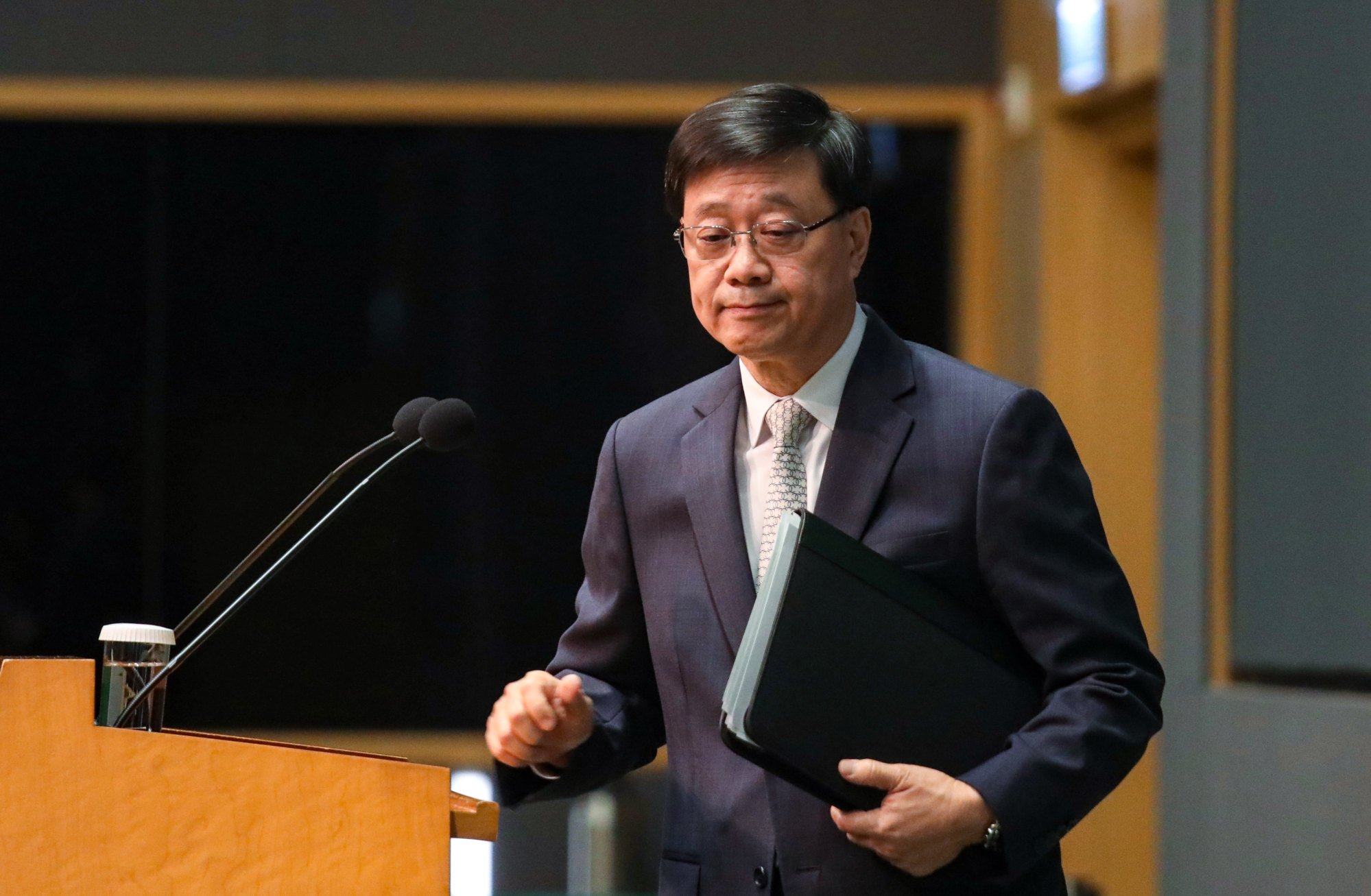Authorities would consider factors including the participation rate of the trial scheme and the provision of supporting facilities before deciding the next steps in May or June, he added.
“We need to take a look at the execution process, our pace, the actual implementation time and the details,” Lee said.

Lo, a former vice-chairman of the All-China Federation of Returned Overseas Chinese, had called for the government to consider postponing or axing the scheme entirely. He said the scheme was raised by the “radical opposition camp” and formulated in a “high pressure” environment where green issues were politicised.
The legislature approved the waste-charging bill in 2021. The scheme, which requires residents to buy designated plastic rubbish bags, has been postponed twice due to public unreadiness.
The government this month rolled out the trial run at 14 locations, including restaurants, and public and private housing. But participants’ responses had been lukewarm.
Tse Chin-wan, the environment and ecology secretary, earlier said that it was uncertain whether the scheme could be implemented citywide on August 1 and that authorities would first need to analyse the trial run results.
Former environment minister Wong Kam-sing, who was responsible for the scheme in the last administration, called on residents to support the effort.
“I urge everyone to cherish this policy that has been developed and supported by successive administrations and many residents, and to help Hong Kong reduce waste and carbon emissions as soon as possible,” he said.
Hong Kong trial run for waste-charging scheme has take-up rate as low as 20%
Hong Kong trial run for waste-charging scheme has take-up rate as low as 20%
Wong also said the political sector should adopt a long-term view of supporting environmental protection, despite an underperforming economy, adding the city could further develop its green industries.
Jonathan Wong Woon-chung, an emeritus biology professor at Baptist University, also criticised Lo for failing to understand the global trend of waste management and the idea of a circular economy that advocates recycling.
“He is viewing things from a political perspective,” he said. “We should not drag politics into it.”
Political disputes had complicated the discussion of waste charging for 15 years and Hong Kong was slow in making progress on the issue compared with foreign countries, he added.
Hong Kong to launch trial run of waste charging; participants unclear about rules
Hong Kong to launch trial run of waste charging; participants unclear about rules
Wong also said the trial run offered an opportunity for the government to smoothen out the wrinkles of the implementation scheme before it went citywide, stressing authorities should not consider postponing the programme.
“The government should lay out clearer guidelines on waste disposal to reassure the public and build their confidence in fulfilling the legal requirement,” he said.
The guidelines should be modified and reviewed from time to time so that residents could better understand the scheme and build good habits, he argued, adding: “We can’t wait until it is perfect to implement.”
Poon Kin-leung, whose property management company was involved in the trial run at Lin Tsui Estate in Chai Wai, said only about 20 per cent of households used designated plastic bags to dispose of waste.
Poon, who is also the chairman of the Hong Kong Association of Property Services Agents, attributed the low participation rate to its trial nature and residents’ lack of awareness on recycling.
He added that his company had to hire one extra cleaner to handle the waste, adding the workers found it difficult to efficiently use all the space in the bags due to their problematic design.















